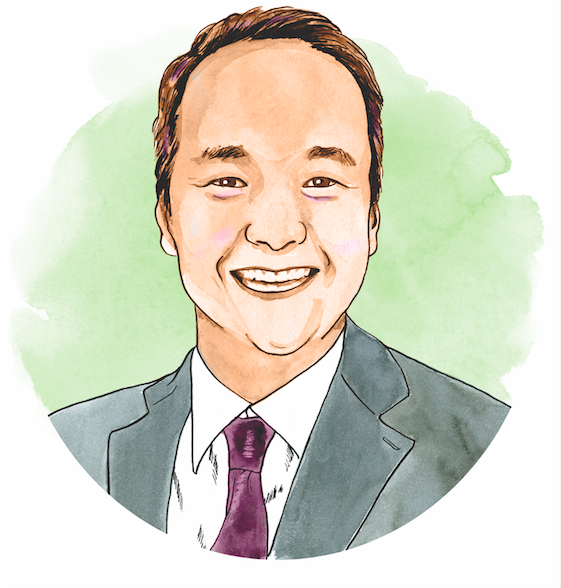
Devin Chen
Executive Vice President, Portfolio Manager and Head of Commercial Real Estate Strategy at PIMCO

What are the key lending opportunities you see as we round out 2021?
We continue to find attractive value in stretch-senior, transitional lending markets, where capital provision from traditional lenders — commercial banks, insurance companies, etc. — remains constrained. We focus on high-quality properties, with LTVs in the 60 to 70 percent range, that are well located and backed by strong sponsorship. The lingering effects of COVID-19 continue to impact commercial real estate assets in various ways and have led to meaningful dispersion across sectors.
Diversifying across property types is important and we’re uncovering value in new construction multifamily, industrial development as well as Class A office. Hospitality is rebounding, but even there we’re seeing significant disparity across business- versus leisure-oriented properties and anticipate uneven recovery curves. With demand for flexible capital solutions on the rise, and a maturity wall approaching, we believe transitional lending opportunities will be persistent over the secular horizon.
What’s the one thing you wish you’d known in March 2020 that you know now?
The magnitude and speed of fiscal and monetary stimulus that would be injected into the economy to combat the COVID-19 crisis. The onset of the pandemic led to sharp declines in the public CRE markets in March and April of last year. During that time, we were actively investing in public real estate securities, including [commercial mortgage-backed securities], to capitalize on deeply discounted values.
The U.S. government responded to the crisis by quickly enacting a number of policies to provide unprecedented amounts of fiscal and monetary stimulus to the economy. The result was a sharp recovery in the public markets with the S&P 500 recovering back to its pre-pandemic highs by June 2020, despite the effects of the virus continuing to persist. If we had known this level of stimulus would be unleashed so quickly, we would have been even more active in the public markets.
Pick your poison (and tell us why you’d drink it): retail or hospitality?
Taking a medium- to long-term view, hospitality is likely going through a period of cyclical stress, while retail distress is structural. On the latter, COVID-19 has accelerated a number of secular trends, including consumers’ shift towards e-commerce. Brick-and-mortar retail square footage in the U.S. will likely decline in the coming years with a lingering debt and distress overhang. Recovery values may be quite low and repurposing can be challenging and expensive depending on location specifics and other idiosyncratic factors.
Hospitality, on the other end, is healing, albeit unevenly. Extended-stay (with lower overhead) and drive-to leisure (due to pent-up demand) were quick to recover, while international travel destinations, business transient and conference/event centers have lagged. When underwriting, conservative cash flow assumptions are needed, but we expect eventual recoveries in well-located hotels, run by experienced operators, in markets with high barriers to entry.
Where are you seeing the most competition for deals today? What’s the greatest weapon in your bidding arsenal?
Among the traditional CRE sectors, demand is strongest in industrial and multifamily sectors, which proved most resilient throughout the COVID-19 period. While this has pushed up valuations and tightened lending spreads, we believe there are still opportunities to get attractive exposure in the transitional lending space. For example, we still find valuations in ground-up industrial construction to be attractive. Stabilized assets continue to be well-financed as well; this is a segment of the market where there is less pricing power, and we tend to avoid. Our greatest asset in CRE is the breadth and scale of our fully integrated real estate platform, which enables us to find opportunities across the risk spectrum and provide a comprehensive shop to real estate counterparties.
New York City: “I want to be a part of it”?
I want to be a part of it. We have already seen a robust recovery in residential/multifamily rents and in select offices and we believe that high-density cities like New York are likely to thrive given the significant amenities they offer and the talented workforce that continues to live there. Companies want to be where the talent is, and no city attracts more talent than New York. Nevertheless, we expect there to be winners and losers, so we are hyper-focused on location and quality of real estate.
Are you adding life sciences deals to your loan portfolio? Why or why not?
Yes, and we like this area for a few reasons. One, it is relatively work from home-proof, since you cannot run a lab from your kitchen. It is also a growing market and we expect demand for science-related products and services — pharma, biotech, etc. — to continue for years to come. We also see top-tier sponsorship that’s well-capitalized owning these types of properties for their diversifying risk and return characteristics as an additional support for the sector. We are mindful of valuations, as this niche of the market has become popular, but we do like the fundamentals and expect the sector to perform well.
Lightning Round
Stabilized or transitional assets?
Transitional.
First work trip post-COVID?
California to Boston in September 2020.
Fast-food guilty pleasure?
Chicken nuggets.
“Ted Lasso” or “The Morning Show”?
“Ted Lasso.”
Peloton bike or outdoor cycling?
Peloton.
Last book you read?
“Billion Dollar Whale,” by Tom Wright and Bradley Hope.
Who would play you in the biopic of your life?
Henry Golding.
“If I hadn’t pursued a lending career I’d be …”
Crypto.






